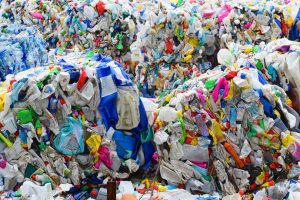
Public and private entities regularly sample waste streams to glean data on the plastics that could be captured for recycling. Now, guidelines have been developed to standardize the process so results can be compared.

Public and private entities regularly sample waste streams to glean data on the plastics that could be captured for recycling. Now, guidelines have been developed to standardize the process so results can be compared.
 A year after an online scrap plastics trading marketplace launched, an executive at the startup offered insight into where material is moving in the aftermath of China’s ban.
A year after an online scrap plastics trading marketplace launched, an executive at the startup offered insight into where material is moving in the aftermath of China’s ban.
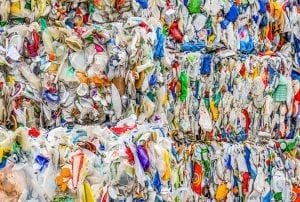
A Utah recycling company is targeting bales of resins Nos. 1-7, possibly filling a critical void in the plastics recovery chain.
Continue Reading
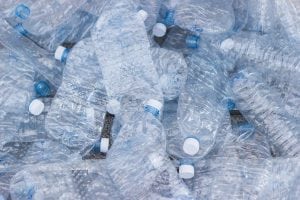 Two Canadian depolymerization startups recently signed significant deals to advance commercialization of their technologies.
Two Canadian depolymerization startups recently signed significant deals to advance commercialization of their technologies.
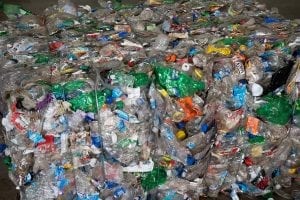 Some beverage brand owners are moving toward 100 percent RPET bottles, but one of the country’s largest PET reclaimers says the magic number may be half that amount.
Some beverage brand owners are moving toward 100 percent RPET bottles, but one of the country’s largest PET reclaimers says the magic number may be half that amount.
 Plastics industry interests are lobbying Washington politicians to fund recycling infrastructure projects, a new area of focus for groups that have historically emphasized trade and regulatory issues.
Plastics industry interests are lobbying Washington politicians to fund recycling infrastructure projects, a new area of focus for groups that have historically emphasized trade and regulatory issues.
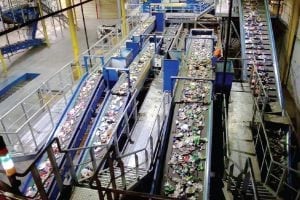 An idled plastics recovery facility (PRF) is being dismantled and its components sold, after efforts to reopen it for the past year have not panned out.
An idled plastics recovery facility (PRF) is being dismantled and its components sold, after efforts to reopen it for the past year have not panned out.
 Hurricane Florence has forced programs to suspend collection and led haulers to remind residential customers about proper storm debris management. At least one packaging giant has been significantly impacted by the hurricane. Continue Reading
Hurricane Florence has forced programs to suspend collection and led haulers to remind residential customers about proper storm debris management. At least one packaging giant has been significantly impacted by the hurricane. Continue Reading
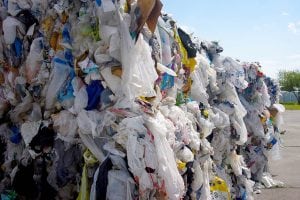 Film collected by retailers could be recycled into a number of additional product types, but contamination will likely stifle end-market potential for curbside material, a report concludes.
Film collected by retailers could be recycled into a number of additional product types, but contamination will likely stifle end-market potential for curbside material, a report concludes.
 A global flexible packaging producer has partnered with a German recycling technology company to process multi-layer film scrap via a solvent-based technique.
A global flexible packaging producer has partnered with a German recycling technology company to process multi-layer film scrap via a solvent-based technique.

